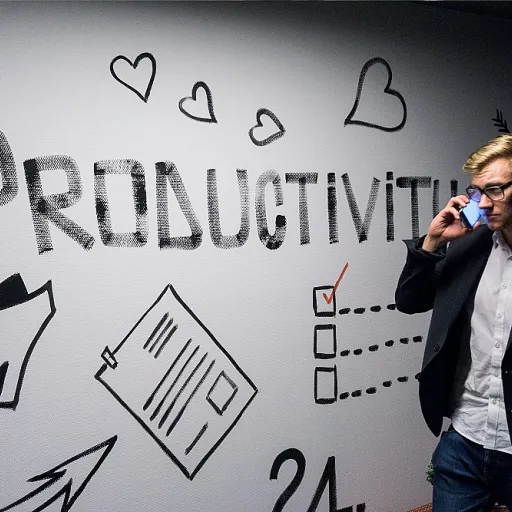
Understanding the skills gap and its impact
Why the Skills Gap Matters for Professionals and Organisations
The skills gap is a growing concern for both individuals and organisations. It refers to the difference between the skills employers need and the skills available in the workforce. This gap can slow down professional growth, hinder organisational development, and impact the overall culture of talent within a company. Years ago, traditional training methods were often enough, but the latest trends show that a more dynamic approach is needed to keep up with rapid changes in technology and business needs.
How the Skills Gap Impacts Teams and Communities
When the skills gap widens, it affects not just individuals but entire teams and communities. Organisations may struggle to fill key roles, leading to increased workloads and stress for existing staff. This can also impact talent management and the ability to build a strong mentoring network. Prevention professionals and partner organisations are now focusing on capacity building and support development to address these challenges. A lack of up-to-date skills can also limit access to free content and practical resources that support ongoing learning.
Challenges in Addressing the Skills Gap
- Rapid changes in required skills due to technology and market shifts
- Limited access to effective training and coaching supervision
- Difficulty in building a culture that values continuous learning and mentoring
- Barriers to connecting with experienced coaches and mentors, especially in virtual or remote settings
Moving Toward Solutions
To bridge the skills gap, organisations and professionals are turning to mentoring, coaching, and team coaching as practical solutions. These approaches help create a supportive network where knowledge and experience are shared. A strong mentoring relationship can provide personalised guidance, while coaching mentoring and supervision offer ongoing support for professional development. For a deeper view on how soft skills play a role in bridging the skills gap, check out this article on bridging the skills gap in project management.
The role of coaching and mentoring in skills development
How coaching and mentoring drive real skills development
In today’s fast-changing work environment, traditional training alone often isn’t enough to keep up with the latest trends and demands. That’s where coaching and mentoring step in, offering a practical approach to professional growth and capacity building. Unlike one-off skills training, coaching and mentoring provide ongoing support, helping individuals and teams adapt, learn, and thrive.
Coaching is typically focused on specific goals and performance improvement. A coach works with professionals to identify strengths and areas for development, using feedback and supervision to guide progress. This approach is especially valuable in team coaching, where a coach can help foster a culture of collaboration and continuous learning within organisations.
Mentoring, on the other hand, is more about long-term development. A mentoring relationship connects less experienced professionals with seasoned mentors who share their view, knowledge, and experience. This network of support helps mentees navigate challenges, build confidence, and develop the skills needed for career advancement. Years ago, mentoring was often informal, but today, structured mentoring networks are becoming a key part of talent management and prevention strategies in many organisations.
- Personalised support: Coaches and mentors tailor their guidance to individual needs, making development more relevant and effective.
- Community and culture: A strong coaching mentoring culture encourages open communication, feedback, and shared learning across the community.
- Virtual and flexible: With virtual coaching and mentoring, professionals can access support development opportunities regardless of location, making it easier to connect with partner organisations and prevention professionals worldwide.
- Ongoing supervision: Coaching supervision ensures that coaches mentors maintain high standards and continue their own professional development.
Organisations that invest in coaching and mentoring networks see practical benefits, from improved skills training to better talent retention. By embedding these approaches into their culture talent strategies, they create an environment where everyone can grow and contribute. For a deeper dive into how coaching enhances performance and bridges the skills gap, check out this article on enhancing performance through coaching.
Building a supportive coaching and mentoring network
Creating a Culture of Support and Growth
Building a strong coaching and mentoring network is not just about connecting people. It’s about creating a culture where professional growth and capacity building are valued. Organisations that invest in mentoring coaching often see a shift in how teams view learning and development. This approach helps prevent skills gaps from widening and supports long term talent management strategies.
Key Elements of an Effective Network
- Diverse Community: A successful mentoring network brings together coaches, mentors, and prevention professionals from different backgrounds. This diversity encourages fresh perspectives and practical solutions to skills training challenges.
- Structured Support: Regular coaching supervision and team coaching sessions help maintain quality and consistency. Supervision ensures coaches and mentors stay updated with the latest trends and best practices.
- Accessible Resources: Providing free content, virtual training, and email support makes it easier for everyone to participate, regardless of location or schedule.
- Partnerships: Collaborating with partner organisations expands the network’s reach and brings in new expertise for ongoing development.
Practical Steps to Build Your Network
- Start by identifying professionals within your community who are interested in coaching mentoring.
- Set up regular meetings—virtual or in-person—to share experiences and discuss the latest in skills development.
- Encourage open communication through email updates and online forums, making it easy for members to ask for support or share insights.
- Offer skills training sessions and invite experienced coaches mentors to lead workshops or webinars.
- Promote a culture talent mindset, where learning is ongoing and everyone is encouraged to contribute.
Years ago, mentoring was often informal and limited to one-on-one relationships. Today, a structured mentoring network can deliver more effective prevention and support development across entire organisations. For a deeper look at how cognitive analytic training can strengthen your network and bridge the skills gap, explore this in-depth view on cognitive analytic training.
Practical strategies for closing your skills gap
Actionable Steps to Strengthen Your Skills
Bridging your skills gap is not just about identifying what you lack, but also about taking practical steps to address those gaps. A coaching and mentoring network can be a powerful resource, but it requires a structured approach and commitment to ongoing development. Here are some practical strategies to help you close your skills gap effectively:
- Engage in targeted skills training: Seek out training opportunities that align with your professional goals. Many organisations and partner organisations offer free content, webinars, and virtual workshops tailored to the latest trends in your field. This can be especially valuable for prevention professionals and those involved in talent management.
- Leverage your mentoring network: Use your network to gain diverse views and insights. Coaches and mentors can provide feedback, share their experiences from years ago, and help you navigate challenges. A strong mentoring relationship fosters a culture of continuous learning and support development.
- Participate in team coaching and supervision: Team coaching and coaching supervision sessions help you reflect on your progress, receive constructive feedback, and build capacity. These sessions also reinforce a culture talent approach, where learning is embedded in daily practice.
- Set clear, measurable goals: Work with your coach or mentor to define specific, achievable objectives. Regular check-ins via email or virtual meetings can help track your progress and adjust your development plan as needed.
- Stay connected with the community: Join professional groups and online communities focused on mentoring coaching and skills development. Sharing experiences and resources with others can provide additional support and keep you updated on the latest industry developments.
Embedding a Culture of Prevention and Growth
Long term success in closing the skills gap depends on fostering a culture that values ongoing learning and prevention. Organisations that prioritise coaching mentoring and capacity building are better equipped to adapt to change and support professional growth. By making development a core part of your daily routine, you not only address current gaps but also prevent future ones.
Remember, practical steps combined with the right support network can transform your approach to professional development. Whether you are seeking guidance from coaches mentors or participating in structured training, the key is to stay proactive and engaged in your learning journey.
Overcoming common challenges in mentoring relationships
Addressing Misunderstandings and Expectations
One of the most common challenges in a mentoring relationship is managing expectations. Both mentors and mentees often come with different views on what coaching and mentoring should deliver. Clear communication from the start helps prevent misunderstandings. Establishing goals, preferred communication channels like email or virtual meetings, and boundaries supports a healthy dynamic. Organisations can offer training to both parties, ensuring everyone understands their roles and the culture of support development.
Building Trust and Psychological Safety
Trust is the foundation of effective coaching and mentoring. Without it, honest feedback and real growth are unlikely. Coaches, mentors, and prevention professionals should foster an environment where mentees feel safe to share challenges. Regular supervision and feedback sessions, whether in person or virtual, can reinforce this trust. A supportive mentoring network or community can also provide additional layers of encouragement and accountability.
Navigating Time Constraints and Commitment
Busy schedules often make it hard for professionals to fully engage in mentoring coaching. To address this, organisations and partner organisations can promote flexible approaches, such as short, focused sessions or group and team coaching. Leveraging the latest virtual tools can help maintain momentum, even when in-person meetings are not possible. Capacity building through ongoing support and free content can also keep development on track.
Ensuring Consistent Support and Supervision
Mentoring relationships can lose effectiveness without consistent support. Coaching supervision and regular check-ins help maintain quality and direction. Coaches mentors should seek feedback and stay updated on the latest trends in talent management and skills training. This approach ensures that the mentoring network remains relevant and impactful for long term professional growth.
Overcoming Cultural and Organisational Barriers
Sometimes, the existing culture or structure of an organisation can hinder the effectiveness of coaching mentoring. Encouraging a culture talent mindset, where learning and development are valued, is key. Prevention includes addressing biases and ensuring equal access to mentoring help for all employees. Organisations can also partner with external coaches or networks to broaden perspectives and bring in fresh approaches to support development.
Measuring the impact of coaching and mentoring on your growth
Tracking Progress and Outcomes in Mentoring and Coaching
Measuring the impact of coaching and mentoring on your professional growth is crucial for both individuals and organisations. It helps you understand what’s working, where you need more support, and how your mentoring network contributes to closing the skills gap.- Set clear goals: At the start of any mentoring relationship, define what you want to achieve. This could be mastering a new skill, improving team coaching abilities, or developing a culture of continuous learning within your community.
- Use regular feedback: Schedule check-ins with your coach or mentor to review progress. Honest feedback, whether through email or virtual meetings, helps you adjust your approach and stay on track.
- Monitor skill development: Keep a record of your skills training and practical experiences. This could be as simple as a journal or a shared document with your coach or supervisor. Tracking your journey makes growth visible and motivates ongoing development.
- Leverage supervision and peer review: Coaching supervision and input from other prevention professionals or partner organisations can provide a broader view of your progress. This is especially valuable in a mentoring network where multiple coaches and mentors contribute to your learning.
- Assess organisational impact: For organisations, measuring the effect of coaching mentoring programs on talent management and capacity building is key. Look at metrics like employee retention, performance improvements, and the adoption of latest trends in training and development.
Tools and Methods for Evaluation
A mix of qualitative and quantitative methods offers a balanced view of your growth:- Surveys and self-assessments: Regular surveys help capture your view on progress and highlight areas for further support development.
- Performance metrics: Track changes in productivity, project outcomes, or other relevant indicators before and after coaching or mentoring help is provided.
- Feedback from coaches mentors: Insights from those guiding you, whether in team coaching or one-on-one sessions, are invaluable for understanding your strengths and areas to improve.













